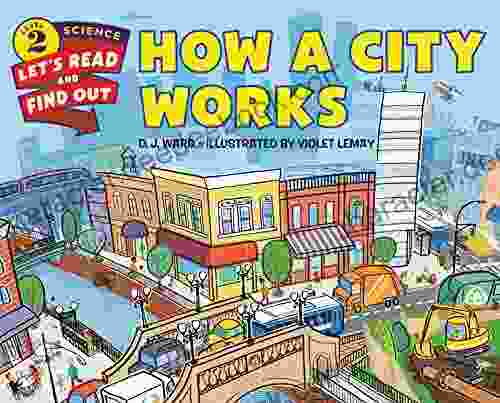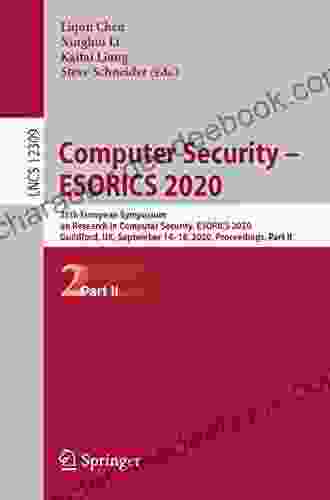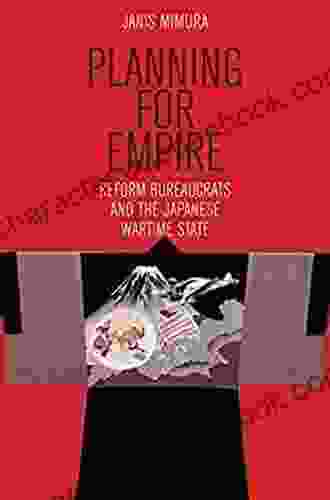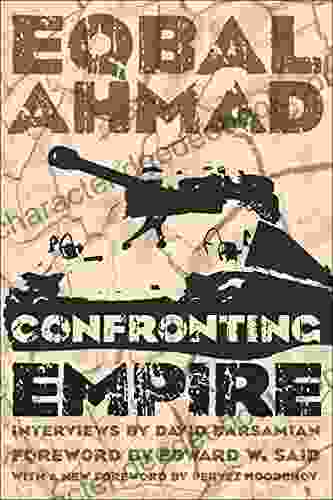Reform Bureaucrats and the Japanese Wartime State: Studies of the Weatherhead East Asian Institute

During the tumultuous period of the Japanese wartime state (1931-1945),a group of reform-minded bureaucrats emerged, driven by a desire to modernize and strengthen the nation. Drawing inspiration from Western models, these bureaucrats sought to overhaul Japan's political and economic structures to meet the challenges of the 20th century.
One of the key institutions that nurtured these reformers was the Weatherhead East Asian Institute (WEAI),established in 1918 as a center for research and intellectual exchange on East Asia. Through its publications, conferences, and other activities, the WEAI played a significant role in shaping the ideas and policies of the Japanese wartime state.
4.9 out of 5
| Language | : | English |
| File size | : | 968 KB |
| Text-to-Speech | : | Enabled |
| Screen Reader | : | Supported |
| Enhanced typesetting | : | Enabled |
| Print length | : | 240 pages |
This article will delve into the history, ideology, and impact of the reform bureaucrats associated with the WEAI. By examining their writings, actions, and legacies, we will gain a deeper understanding of the complex forces that shaped Japan during this critical period.
The Weatherhead East Asian Institute: A Catalyst for Reform
The WEAI was founded by the American businessman George Huntington Weatherhead as a non-profit organization dedicated to promoting understanding between the United States and East Asia. The Institute's initial focus was on China, but it gradually expanded its scope to include Japan and other East Asian countries.
One of the WEAI's key missions was to cultivate a new generation of Japanese leaders who were knowledgeable about Western ideas and committed to Japan's modernization. To this end, the Institute provided scholarships for Japanese students to study in the United States and invited prominent American scholars and policymakers to give lectures in Japan.
Among the Japanese scholars who benefited from the WEAI's programs were several who would later become influential reform bureaucrats. These included:
- Shigeru Yoshida, who served as Prime Minister of Japan from 1946 to 1947 and 1948 to 1954. - Ichiro Hatoyama, who served as Prime Minister of Japan from 1954 to 1956. - Tanzan Ishibashi, who served as Prime Minister of Japan from 1956 to 1957. - Bukichi Miki, who served as Foreign Minister of Japan from 1954 to 1956 and 1957 to 1960.
These bureaucrats were deeply influenced by their experiences at the WEAI and its emphasis on the importance of Westernization and modernization. They believed that Japan needed to adopt Western political and economic institutions to achieve its full potential.
The Reform Bureaucrats' Agenda
The reform bureaucrats' agenda was multifaceted and ambitious. They sought to:
- Strengthen the Japanese economy by promoting industrialization and trade. - Modernize Japan's political system by introducing democratic reforms and increasing public participation. - Expand Japan's empire in order to secure access to natural resources and markets. - Promote Japan's cultural and spiritual values on the world stage.
The reform bureaucrats believed that these goals could be achieved through a combination of top-down reforms and grassroots mobilization. They worked tirelessly to develop policies and programs that would transform Japanese society and position the nation as a major power in the world.
The Reform Bureaucrats in Action
The reform bureaucrats held a variety of positions within the Japanese government and played key roles in shaping policy during the wartime period. Some of their most significant achievements included:
- The establishment of the Manchukuo regime in Manchuria in 1932, which served as a laboratory for Japan's colonial policies. - The passage of the National Mobilization Law in 1938, which gave the government sweeping powers to control the economy and society. - The establishment of the Greater East Asia Co-Prosperity Sphere in 1940, which was Japan's attempt to create a new economic and political order in East Asia.
The reform bureaucrats were also instrumental in Japan's decision to go to war against the United States and its allies in 1941. They believed that war was necessary to secure Japan's access to natural resources and to prevent the spread of communism in Asia.
The Legacy of the Reform Bureaucrats
The reform bureaucrats' legacy is complex and controversial. On the one hand, they played a key role in Japan's modernization and economic development. On the other hand, they also bear responsibility for Japan's aggression and expansionism during the wartime period.
After the war, many of the reform bureaucrats were purged from the government and their ideas were discredited. However, their influence continued to be felt in Japanese society. Many of the policies that they implemented during the wartime period remained in place after the war and helped to shape Japan's postwar economic and political development.
In recent years, there has been a renewed interest in the reform bureaucrats and their ideas. Some scholars have argued that they were not as responsible for Japan's wartime aggression as they have been portrayed. Others have argued that their ideas remain relevant to Japan today and can help the nation to address the challenges of the 21st century.
The reform bureaucrats who were associated with the Weatherhead East Asian Institute played a significant role in shaping Japan during the tumultuous period of the wartime state. Their ideas and actions helped to modernize Japan's economy and political system, but they also contributed to Japan's decision to go to war. Their legacy is complex and controversial, but their influence continues to be felt in Japanese society today.
4.9 out of 5
| Language | : | English |
| File size | : | 968 KB |
| Text-to-Speech | : | Enabled |
| Screen Reader | : | Supported |
| Enhanced typesetting | : | Enabled |
| Print length | : | 240 pages |
Do you want to contribute by writing guest posts on this blog?
Please contact us and send us a resume of previous articles that you have written.
 Book
Book Page
Page Text
Text Story
Story Genre
Genre Reader
Reader E-book
E-book Magazine
Magazine Newspaper
Newspaper Sentence
Sentence Bookmark
Bookmark Glossary
Glossary Bibliography
Bibliography Foreword
Foreword Preface
Preface Synopsis
Synopsis Footnote
Footnote Codex
Codex Classics
Classics Library card
Library card Reference
Reference Encyclopedia
Encyclopedia Character
Character Librarian
Librarian Catalog
Catalog Borrowing
Borrowing Stacks
Stacks Study
Study Research
Research Academic
Academic Journals
Journals Reading Room
Reading Room Rare Books
Rare Books Interlibrary
Interlibrary Literacy
Literacy Dissertation
Dissertation Storytelling
Storytelling Reading List
Reading List Theory
Theory Textbooks
Textbooks Denise Layman
Denise Layman Kevin J Mcmahon
Kevin J Mcmahon Lisa Cassidy
Lisa Cassidy Tom Lowe
Tom Lowe Gabriel Rosenstock
Gabriel Rosenstock Jean Giono
Jean Giono Emily Nelson
Emily Nelson Anna Kirwan
Anna Kirwan Min Zhou
Min Zhou Gabriel Steinhardt
Gabriel Steinhardt N L Westaway
N L Westaway Patrick Neate
Patrick Neate Karan Johar
Karan Johar Heather Land
Heather Land Aram Ziai
Aram Ziai Rachel Williams
Rachel Williams Martina Meier
Martina Meier Sarah Josepha Hale
Sarah Josepha Hale Dejah Rice
Dejah Rice Karen M Burns
Karen M Burns
Light bulbAdvertise smarter! Our strategic ad space ensures maximum exposure. Reserve your spot today!

 Terence NelsonPeople and Climate Change: A Critical Examination of Impacts, Adaptation, and...
Terence NelsonPeople and Climate Change: A Critical Examination of Impacts, Adaptation, and...
 Duane KellyMastering Essential Math Skills for Academic Success: A Comprehensive Guide...
Duane KellyMastering Essential Math Skills for Academic Success: A Comprehensive Guide... Floyd PowellFollow ·4.2k
Floyd PowellFollow ·4.2k Kazuo IshiguroFollow ·14.9k
Kazuo IshiguroFollow ·14.9k Aldous HuxleyFollow ·5.7k
Aldous HuxleyFollow ·5.7k Mario Vargas LlosaFollow ·5.2k
Mario Vargas LlosaFollow ·5.2k Owen SimmonsFollow ·3.1k
Owen SimmonsFollow ·3.1k Braden WardFollow ·9.6k
Braden WardFollow ·9.6k George MartinFollow ·8.2k
George MartinFollow ·8.2k Darrell PowellFollow ·8.5k
Darrell PowellFollow ·8.5k

 Ronald Simmons
Ronald SimmonsHow Do Cities Work? Let's Read and Find Out!
Cities are...

 Tom Clancy
Tom Clancy25th European Symposium on Research in Computer Security...
<p>Guildford,...

 Lawrence Bell
Lawrence BellHow We Decide: Cognitive Behavior in Organizations and...
Organizations are...

 E.M. Forster
E.M. ForsterOver 60 Little Masterpieces To Stitch And Wear:...
Embark on a Creative...

 Douglas Foster
Douglas FosterUnveiling the Educational Treasure: CGP KS2 Geography:...
In the ever-evolving educational...
4.9 out of 5
| Language | : | English |
| File size | : | 968 KB |
| Text-to-Speech | : | Enabled |
| Screen Reader | : | Supported |
| Enhanced typesetting | : | Enabled |
| Print length | : | 240 pages |










